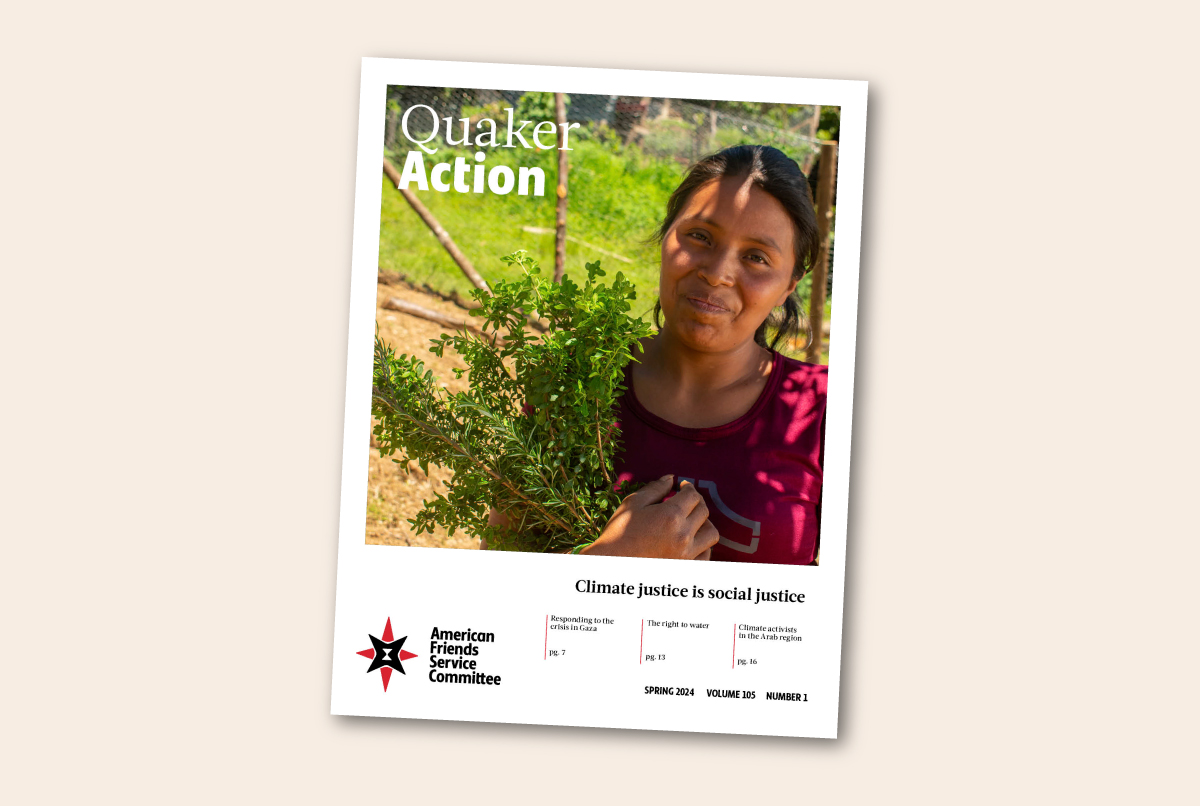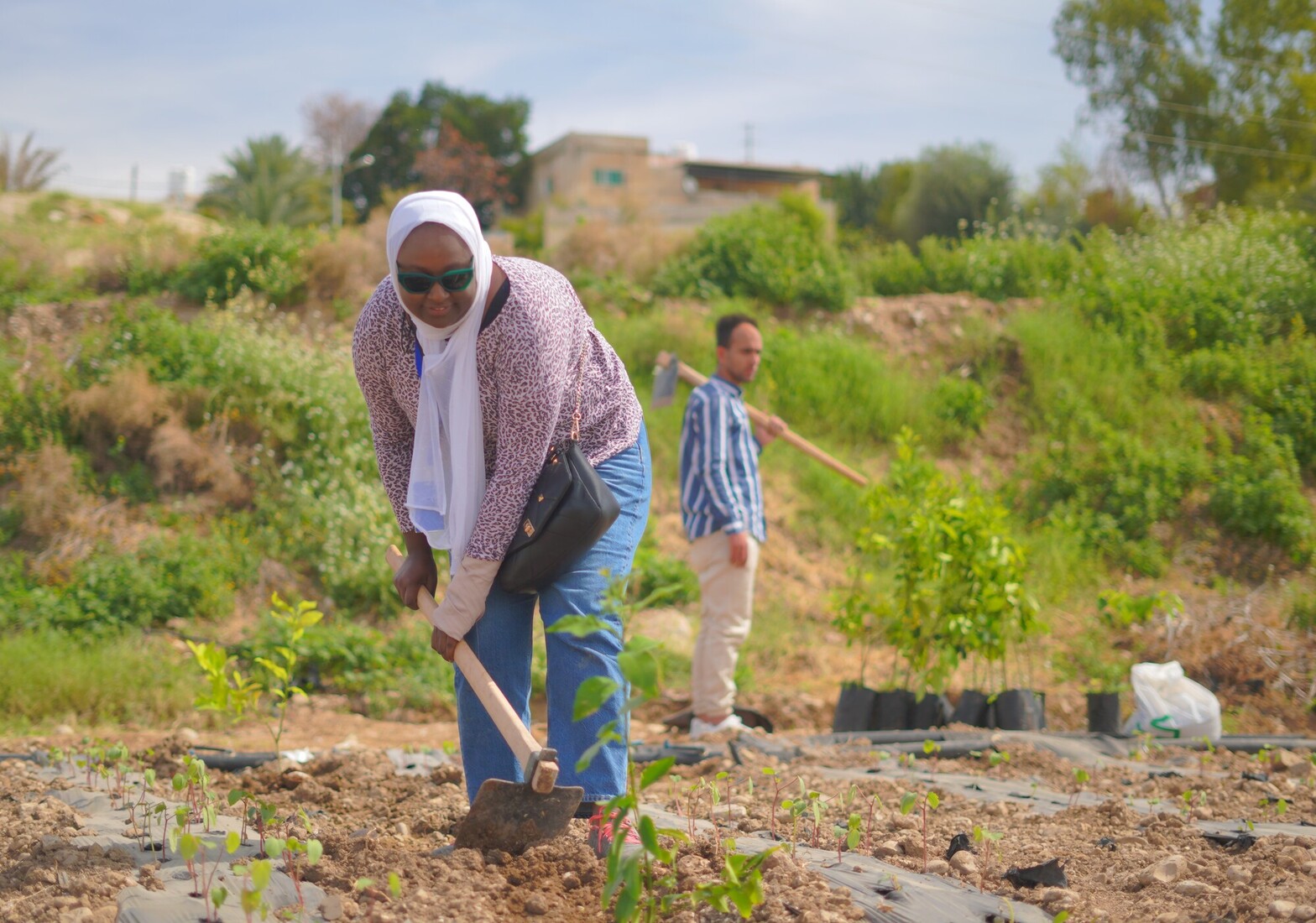
Participants at an AFSC-sponsored gathering on climate justice plant trees in the Jordan Valley. Photo: AFSC/Middle East
OVER THE PAST DECADE, we’ve seen a massive increase in climate-related crises. This has been especially true in the Middle East and North Africa, also known as the Arab or MENA region.
Although the Arab region contributes less than 5% of world greenhouse gas emissions, it is considered one of the most climate-vulnerable regions. Increasing temperatures, changes in precipitation, rising sea levels, and dwindling water supply could be catastrophic for a region already suffering from water scarcity.
But there is hope. Last year, AFSC brought together climate justice activists, academic experts, government officials, and civil society organizations in Amman, Jordan. The gathering was part of AFSC’s Dialogue and Exchange Program, which provides a safe space for people to share their knowledge and experiences, learn from each other, and collaborate on issues of peace and justice. As civil society faces more restrictions from repressive governments, it has become even more important to provide such spaces for people to come together.
At the Amman gathering, participants represented Palestine, Jordan, Egypt, Lebanon, Tunisia, and Morocco. Each participant works on climate and environmental issues in a different way. But they share a common commitment to addressing climate change with innovative solutions while also advancing human rights and equity for all.
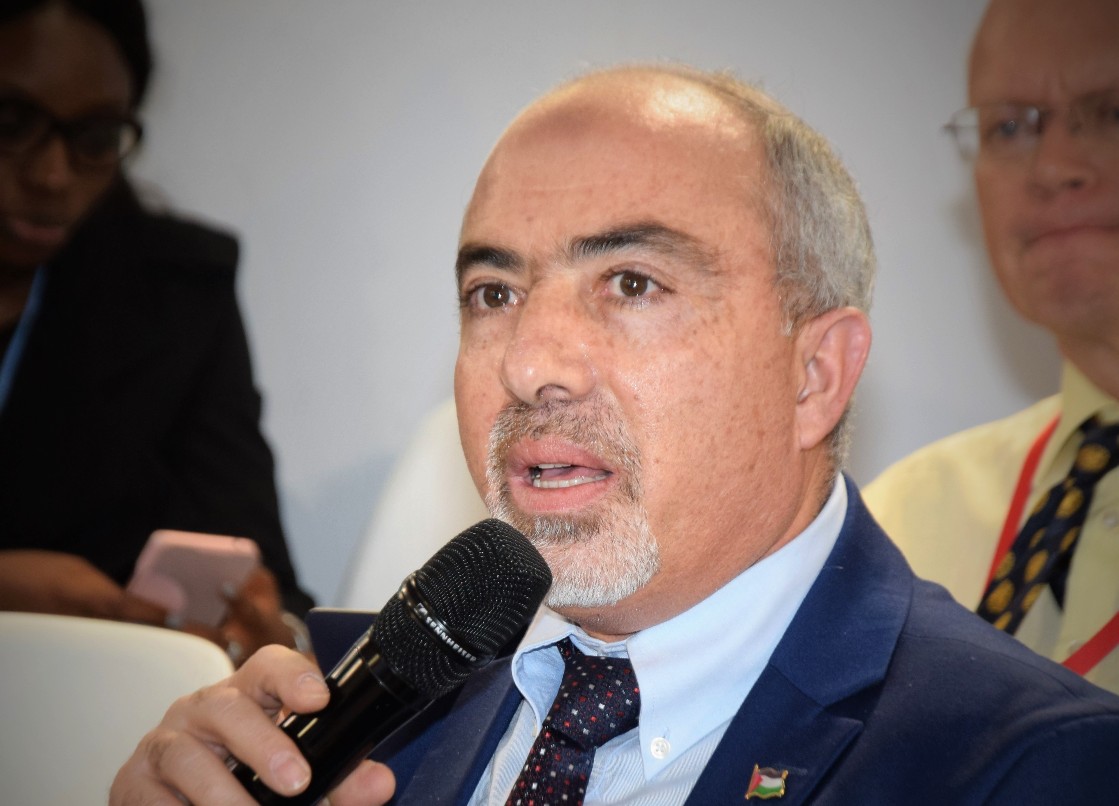
Connecting human rights and climate action
Nedal Katbeh-Bader has played a key role in shaping Palestine’s climate policies. He served as the Minister’s Advisor for Climate Change at the Environment Quality Authority within the Palestinian Authority from 2010 until he retired in 2023. There he led national efforts to guide the region toward a more sustainable future.
Palestine, as part of the east Mediterranean, is a hotspot for climate change, seeing average temperature increases nearly double the global average. But mitigation as well as adaptation efforts face enormous obstacles under the Israeli occupation. This was true even before the escalation of violence in the region in recent months.
One glaring example is Israel’s control over all water resources. In illegal Israeli colonies in the West Bank, Jewish settlers have continuous access to water through Israel’s water grid. Palestinians do not. Their water is severely restricted, and taps can run dry for weeks. This deprives Palestinians of adequate water for drinking, sanitation, household needs, and growing food. The Israeli government has systematically destroyed water cisterns and even restricts the collection of rainwater.
Throughout his career, Nedal has said that addressing climate change requires addressing the occupation and connected human rights violations. These issues initially found no place at high-level climate change talks, like the U.N. Climate Change Conference (COP). But that is changing, thanks largely to the younger generation of climate justice leaders who have pushed these issues to the forefront.
“When we’re talking about access to water, food security, and the minimum standards for dignity, you cannot disconnect this from basic human rights,” Nedal says.
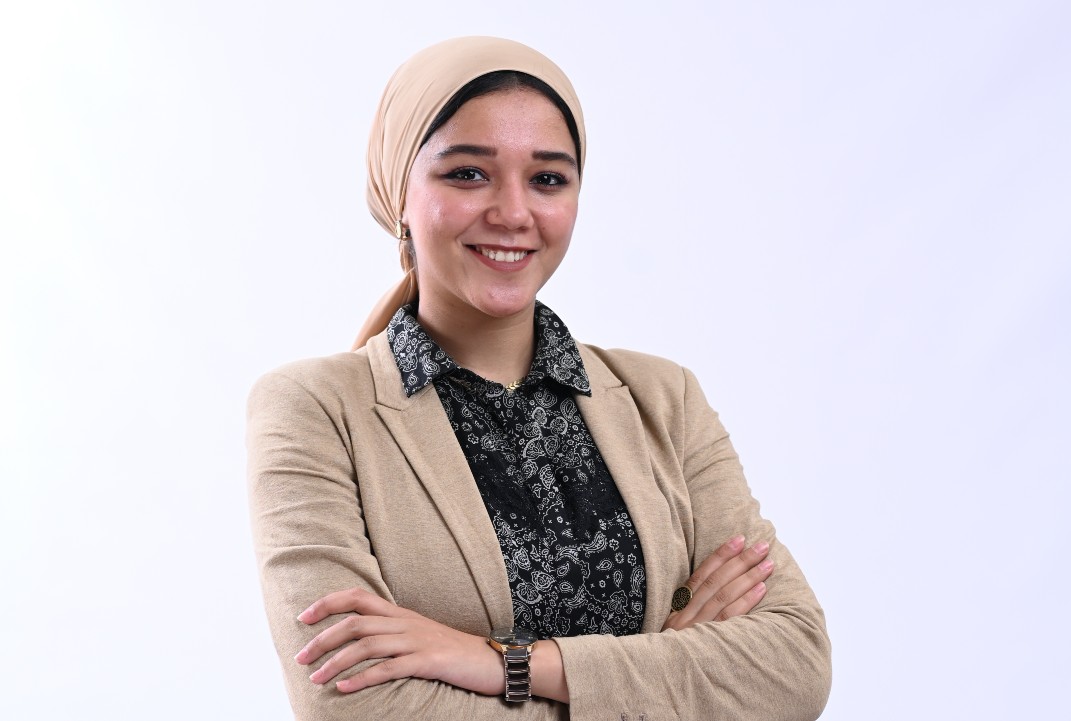
Promoting cooperation among civil society and government
Hager Elsayed worries that her home—the port city of Alexandria, Egypt—may disappear because of rising sea levels, displacing millions of residents. She knows that hotter temperatures, air pollution, and other environmental factors have posed major public issues for her country, as well.
"Due to the high temperatures we face, I was affected negatively in my own health,” she says. Her personal experience compelled her to get involved in working for climate justice at the age of 21. She felt “it was my responsibility to take action because climate change affects our health, our livelihoods, and all aspects of our lives.”
In the three years since, Hager has worked for environmental organizations focused on climate change. She researched and authored a paper on the impacts of climate change on international migration. At COP28, she served as one of the first young negotiators with Egypt’s official delegation. Now, she is focused on climate finance—funding locally led initiatives to mitigate or adapt to a changing climate.
Hagar is calling for more collaboration among civil society organizations and governments. “We need to learn how can we fill the gap between the civil society and government to have acomprehensive approach in our calling for climate justice,” she says. She says AFSC’s dialogue in Amman “helped us define the challenges and opportunities we face—and the means for civil society to integrate their voices in the government’s policy.”
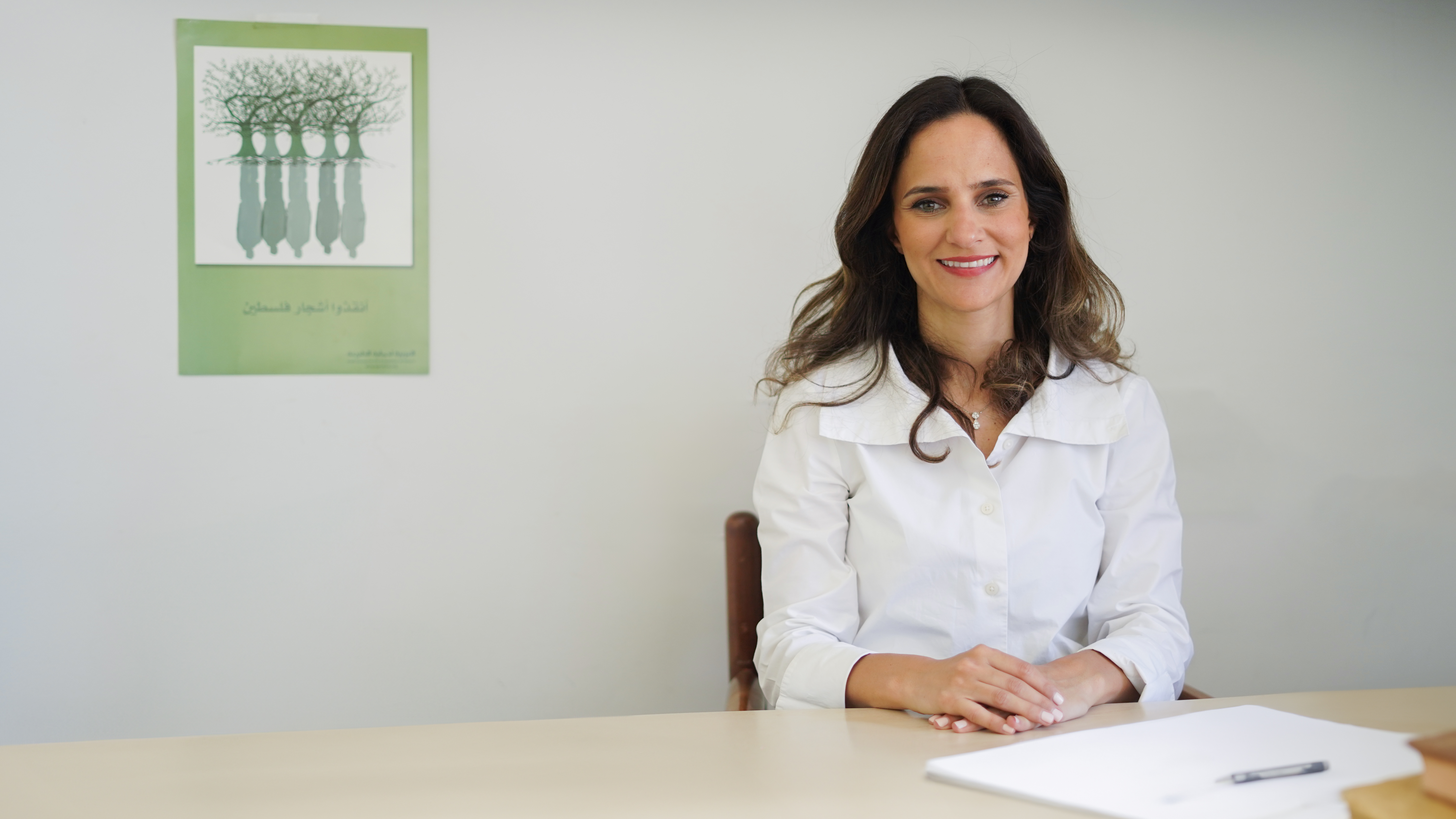
Centering the real needs of communities
Mariam Al Jaajaa heads the nonprofit organization Arab Group for the Protection of Nature (APN), which is dedicated to protecting the environment and the natural resources of Arab countries against all hazards, including war and foreign occupation. It also advocates for policies to promote food sovereignty.
Over decades, Israeli occupation forces have uprooted millions of olive and fruit trees from Palestinian farms, displacing Palestinians from their lands and depriving them of their source of livelihood. APN was founded in 2003 to replant those trees and ensure farmers remain rooted to the land. Since then, it has planted more than 2 million trees, working with over 30,000 farmers. The organization has also planted more than 200,000 trees in Jordan, bringing social, environmental, and economic value to rural communities that struggle with high rates of unemployment, poverty, and food insecurity.
Any actions to address climate change must be shaped by the communities they’re purporting to serve, Mariam says. She points to a recent foreign aid project in Jordan, where donors wanted civil society organizations to plant specific species of trees to offset carbon emissions—with the condition that these trees would not provide food to the communities or be productive in any way. APN refused to take part in the project.
“When you don't dig deep on why different communities are impacted differently by climate change, you can implement climate change interventions that could actually make some people's lives worse,” she says.
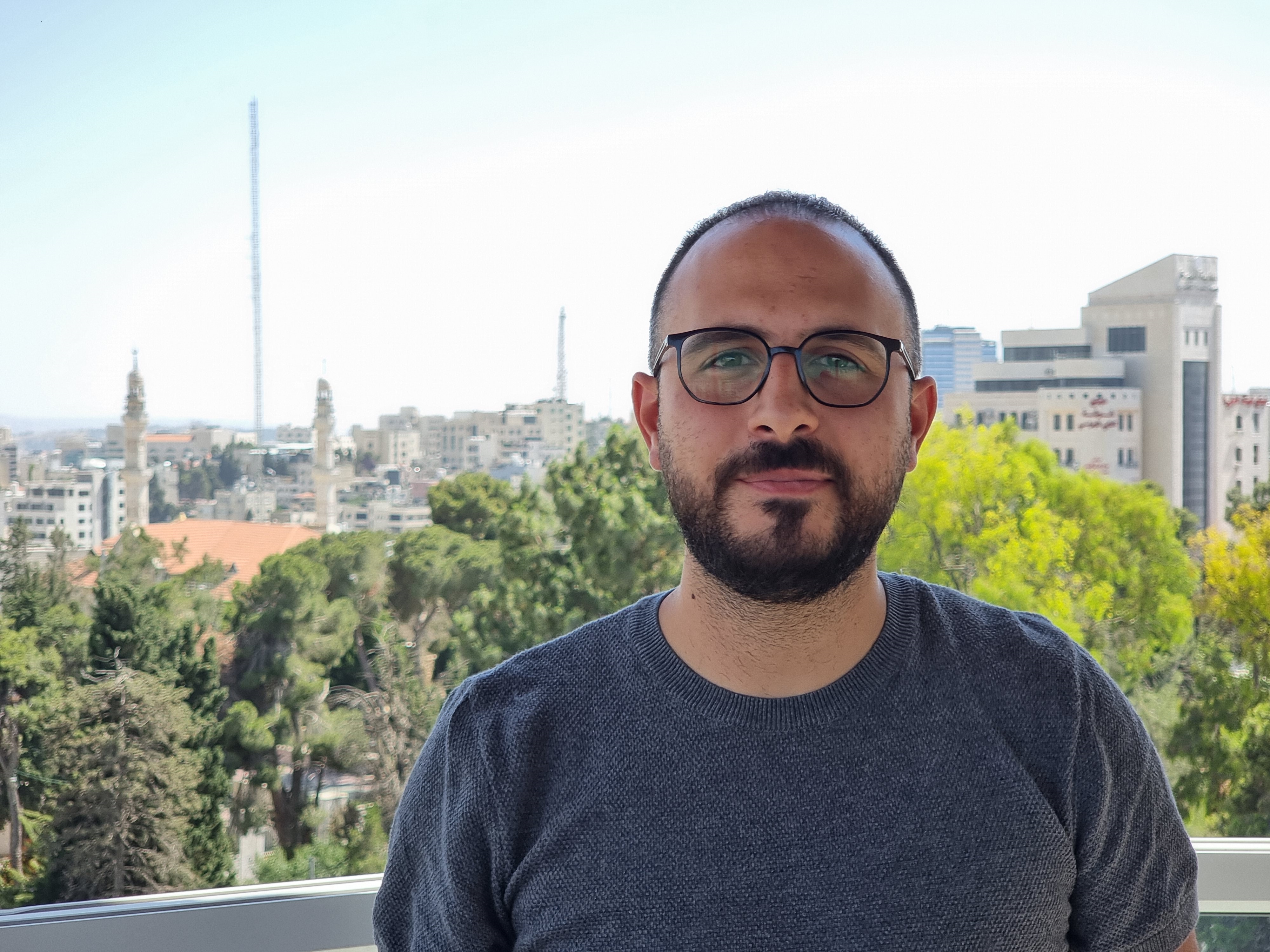
Building capacity for civil society members and organizations
Nidal Atallah works for the Heinrich Böll Foundation’s Palestine & Jordan office, serving as coordinator of the Environmental Justice Program. The foundation carries out a range of activities with local partner organizations tackling environmental issues in the MENA region—facilitating debates, developing the capacity of civil society organizations, documenting environmental violations, coordinating awareness and advocacy campaigns, and supporting environmental journalism.
Nidal has seen how civil society members and organizations are beginning to make the connections between climate justice, human rights, and gender equality. Many aspire to develop their knowledge and capacity to engage in climate justice work both locally and globally.
To help fill this need, the Heinrich Böll Foundation provides training workshops for youth activists and other civil society members to explore these issues and get more involved in climate justice efforts. That includes trainings on how to take part in global climate negotiations. Through these workshops and other gatherings, members of civil society are also building a network to collectively advocate for environmental policies through a human rights and justice-based approach.
“We are working to reach this middle ground where you have a civil society that understands the scientific aspects of climate change and the technical aspect of negotiations, but is also fighting for justice, Indigenous rights, and so on. And are capable of building alliances globally,” Nidal says.
